Building Digital Learning Skills and Lessons into the Core Curricular Subjects
Welcome to "Ask the Tech Coach," a podcast for Instructional Coaches and Technology Integration Specialists.
In this episode of “Ask the Tech Coach,” Jeff and Barb discuss the importance of including Digital Learning standards and skills into core-curricular subjects and lesson plans.
If you would like to be a part of future podcasts and share your thoughts, please contact the podcast. We would love to have you join the show.
Question of the Week
Our favorite part of recording a live podcast each week is participating in the great conversations that happen on our live chat, on social media, and in our comments section. This week’s question is: How do you build Standards-Based Digital Learning Skills into Core Curriculum Subjects?Weekly Topic
Building Digital Learning into the Curriculum- Can Digital Learning and subject area content coexist?
- It’s not the “and” … it’s the “through”
- How to build a multi-grade curriculum of digital learning skills
- Creating a Digital Learning Scope & Sequence
- Create major categories of Digital Learning Topics
- Technology Skills
- Digital Literacy Skills
- Device Skills
- Research Skills
- Digital Citizenship Skills
- Social & Emotional Learning
- Break down those categories into individual skills
- Technology Skills
- K-2:
- Identifying computer components such as the processor, keyboard, mouse, monitor, speakers, and printer.
- Being able to use a mouse to select, drag and click objects on the screen.
- Associating computer components with their function.
- 3-5th:
- Defining input, output and processing devices.
- Describing how internal and external parts of computing devices work together.
- Conceptualizing the cloud and understanding cloud computing and its uses.
- Discussing privacy issues and how personal information should be protected.
- 6-8th:
- Applying computer fundamentals knowledge to other technology, including mobile devices.
- Understanding network technology and applying knowledge in cross-platform connectivity uses.
- Mastering safety and responsibility online, including how to be a good digital citizen.
- K-2:
- Digital Literacy Skills
- Basic computer skills: Skills needed to control digital devices and use them to accomplish simple tasks, such as turning ‘on or off’; keyboarding; using a mouse, right or left clicking, double clicking. Basic applications include e mail, Internet browsers, search sites (e.g., Google.com), maps, and calendars. Harris noted that use of these applications requires some proficiency with language and literacy. Harris (2015) (https://lincs.ed.gov/sites/default/files/2-Digital-Lit-Tab-2-508.pdf)
- Network Literacy: Network literacy emerged from the concepts of search literacy and information literacy, focusing on the skills required to access and curate information as required by social networks (Pegrum, 2010).
- Social media including Facebook, LinkedIN, SnapChat, and other social websites, has lent weight to one’s knowledge of online social networks, how to learn from them and through them, and how to use them to access and disseminate information. (https://lincs.ed.gov/sites/default/files/2-Digital-Lit-Tab-2-508.pdf)
- Media Literacy: Media literacy focuses on finding, evaluating, using, and communicating information from print to video to the internet.
- Media literacy also takes into account production skills, including the production of original content and remix, through which learners contribute to the body of information found online (Bigelow, Vanek, King, & Abdi, 2017; Knobel & Lankshear, 2008). https://lincs.ed.gov/sites/default/files/2-Digital-Lit-Tab-2-508.pdf
- Device Skills
- How to transport a device safely
- How to take care of a device
- How to use a digital inking tool
- Research Skills
- How to search for something online
- How to properly cite a source
- How to review and comment on another persons writing
- Digital Citizenship Skills: “Someone who is able to think critically about the opportunities and challenges of the digital world and use technology responsibly to learn, create, and participate.” https://casel.s3.us-east-2.amazonaws.com/BCW-Slides-SEL-and-Digital-Citizenship_09-24-21.pdf
- Media Balance
- Online Privacy
- Relationships & Communication
- Social & Emotional Learning: Social and emotional learning (SEL) is the process that all individuals go through as they develop the intrapersonal and interpersonal skills that will help them thrive -- in their own lives, as members of their communities, and in the world at large.
- Self-Awareness: Identifying emotions, accurate self-perception, recognizing strengths, self-confidence, and self-efficacy.
- Understanding online cues
- Identifying Red flag feelings when using technology
- Reflecting on how social media impacts personal identity
- Self-Management: Impulse control, stress management, self-discipline, self-motivation, goal-setting, and organizational skills.
- Exhibiting media balance/self-discipline
- Managing one’s emotions around media
- Setting goals to achieve a healthy media balance
- Social Awareness: Perspective-taking, empathy, appreciating diversity, respect for others.
- Taking others’ perspectives
- Showing concern about others
- Identifying the norms of their online communities, including unjust ones
- Relationship Skills: Communication, social engagement, relationship-building, teamwork.
- Maintaining healthy relationships when communicating online
- De-escalating digital drama
- Supporting their peers if they experience cyberbullying
- Responsible Decision-Making: Identifying problems, analyzing solutions, solving problems, evaluating, reflecting, and ethical responsibility.
- Developing curiosity and open-mindedness
- Evaluating the positive and negative impacts of being online
- Using technology responsibly to promote personal, family, and community well-being
- Self-Awareness: Identifying emotions, accurate self-perception, recognizing strengths, self-confidence, and self-efficacy.
- Technology Skills
- Determine what skills should be taught in each grade.
- Introduction
- Repetition
- Proficiency
- How will proficiency be demonstrated
- Determine how each skill will be introduced and in what setting
- Instructional Coach
- Library Media Specialist
- Core Classroom Activities
- Determine in what core classes these skills will be included in lesson plans
- Create major categories of Digital Learning Topics
- Use your Instructional Coaches to support the implementation of the scope & sequence
Contact the Podcast!
- TeacherCast.net/VoiceMail
- Twitter: @AskTheTechCoach
- Email: feedback@teachercast.net
Subscribe to “Ask the Tech Coach”
Follow our Podcast on Social Media
- The TeacherCast Educational Broadcasting Network | @TeacherCast
- Ask the Tech Coach Podcast | @AsktheTechCoach
Follow our Hosts
- Jeff Bradbury | @JeffBradbury
- Susan Vincentz | @sv314dws
Join our PLN
Are you enjoying the TeacherCast Network, please share your thoughts with the world by commenting on iTunes today? I enjoy reading and sharing your comments on the podcast each week.The Teach Better Podcast Network
The Teach Better Podcast Network is dedicated to supporting the entire school ecosystem through in-depth conversations around topics you care about. Covering a variety of areas in education, each podcast aims to support educators in the field toward creating and maintaining a progressive, student-focused classroom. Check out the recent episodes, subscribe, and learn more about the variety of shows!Let’s Work Together
- Host: Jeff Bradbury @TeacherCast | @JeffBradbury
- Email: info@teachercast.net
- Voice Mail: http://www.TeacherCast.net/voicemail
- YouTube: http://www.TeacherCast.net/YouTube
- iTunes: http://www.TeacherCast.net/iTunes
Check Out Additional TeacherCast Programming
- TeacherCast Podcast (http://www.teachercast.net/tcp)
- Educational Podcasting Today (http://www.educationalpodcasting.today)
- The Jeff Bradbury Show (http://www.BuildYourEDUBrand.com)
Need a Presenter?
- Jeff Bradbury (@TeacherCast) is available as a Keynote Speaker, Presenter, or to Broadcast your conference LIVE!




